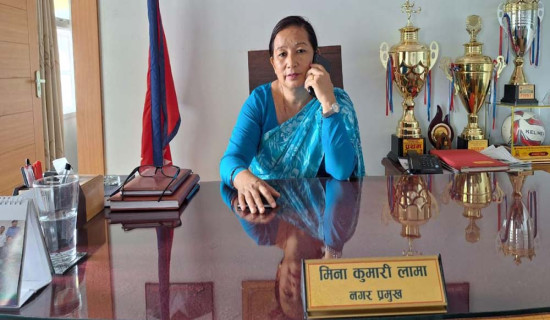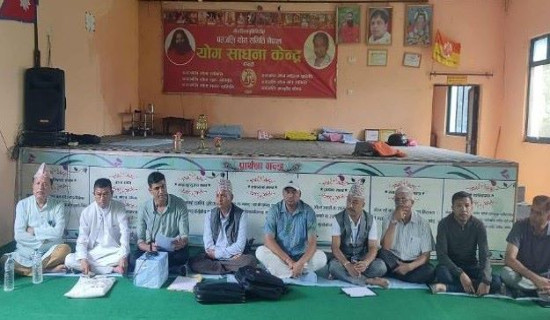- Sunday, 31 August 2025
Ensure Safety Of Nepali Workers Abroad
During a recent conversation with a friend in Kathmandu, a woman shared her growing anxiety over reports of Israeli attacks on Iran. Her husband had recently left for Israel under the government-to-government labour agreement between Nepal and Israel to take up a caretaker job. The couple has a 15-month-old daughter, and while she remains in close contact with her husband — who reassures her that he and other Nepali workers are safe and that the Israeli government is taking care of them — the worry is evident in her demeanour. Despite her efforts to appear cheerful, the strain was written on her face.
Migrant workers are the backbone of Nepal’s economy and the main source of foreign remittance. Among them, approximately 5,000 Nepali migrant workers are currently stationed in Israel. These individuals now face heightened risks to their lives as Israel escalates its conflict, this time with Iran. On Friday, 13 June 2025, Israel launched a series of strikes on Iran, targeting nuclear facilities and military sites. According to Al Jazeera, the attacks included assassinations of top Iranian military officials and nuclear scientists. Media houses, including TV studios, were also reportedly hit.
Retaliation
This operation, dubbed Operation Rising Lion, involved dozens of Israeli fighter jets striking key infrastructure such as uranium enrichment sites in Tehran and Natanz, missile factories, and high-level command centres. Following the strikes, Iranian forces retaliated, and a series of counterattacks ensued. In a recorded video statement posted on X (formerly Twitter), Israeli Prime Minister Benjamin Netanyahu announced, “Moments ago, Israel launched Operation Rising Lion, a targeted military operation to roll back the Iranian threat to Israel's very survival." On the other hand, Iran has appealed to global powers to condemn the Israeli strikes. Since that fateful Friday the 13th, the situation has only escalated.
As of this writing, BBC reports that over 220 people have been killed in Iran due to Israeli strikes, according to Iran's Health Ministry. In contrast, Israel claims that Iranian attacks have killed 24 people on their side. A G7 meeting comprising leaders from Britain, Canada, France, Germany, Italy, Japan and the United States, along with the European Union, was being held in the resort town of Kananaskis in the Canadian Rockies. Discussions on the unfolding Middle East crisis dominated the agenda. On Monday night, U.S. President Donald Trump abruptly left the summit to return to the United States due to the rising tensions.
Iran has accused the U.S. of supporting Israel’s attacks. While President Trump acknowledged prior knowledge of Israel’s plans, he claimed the United States did not participate in the operation. Meanwhile, UK Prime Minister Sir Keir Starmer called for calm and restraint from both Israel and Iran, although, as of now, there is little indication that either side is heeding this call. Israel was established in 1948 as a homeland for Jewish people following the horrors of the Holocaust during World War II. Located in the Middle East, Israel has a Mediterranean coastline. Iran, also in the Middle East, shares borders with Afghanistan to the east and Iraq to the west. It is an Islamic Republic governed heavily by religious leaders, with the majority of its population adhering to the Shia branch of Islam.
The two nations have long-standing animosity and have frequently exchanged hostilities. Now, Israel’s latest offensive has reignited fears of a wider regional conflict. President Trump has repeatedly stated that Iran should have signed the nuclear treaty with the U.S. and insists that Iran must return to negotiations to limit its nuclear ambitions. His rhetoric echoes past diplomatic efforts that have largely failed to bring lasting peace.
Wars appear to be on the rise globally. The Middle East is increasingly volatile, with the ongoing Israel–Palestine war continuing to inflict devastation on Palestinian civilians. Now, with Israel attacking Iran, hopes for peace in the region seem ever more remote. Simultaneously, the war in Ukraine continues to dominate global headlines and exacerbate humanitarian crises. G20 countries have reiterated their commitment to global peace. But such declarations increasingly ring hollow.
Pressing question
All these developments prompt a pressing question: if world leaders are truly committed to ending wars and restoring peace and democracy, why are there no stricter international regulations prohibiting the supply of weapons to countries engaged in warfare? Every day, civilians are dying — people who have no role in the political decisions made by their governments. As in most conflicts, the most marginalised communities, women, children, the elderly, and persons with disabilities, suffer the gravest consequences. Gender-Based Violence surges during wartime, and accountability for such crimes is often shrouded in impunity once the fighting subsides.
It is time for global citizens to rise in a unified protest against war. Civil society advocacy must reach the ears of powerful nations, many of whom are also the world’s leading arms suppliers. There needs to be a shift in priorities: from war profiteering to peacebuilding. War must end. In the meantime, the Nepal government must act swiftly to ensure the safety and well-being of its citizens working abroad, particularly in conflict zones. In coordination with the Israeli government, Nepali migrant workers should be either relocated to safer areas or brought back home until the situation stabilises. Their families deserve peace of mind, and these workers — who contribute so much to our national economy — deserve protection and dignity.
(Sharma is a senior journalist and women’s rights advocate. namrata1964@yahoo.com or on X @NamrataSharmaP.)



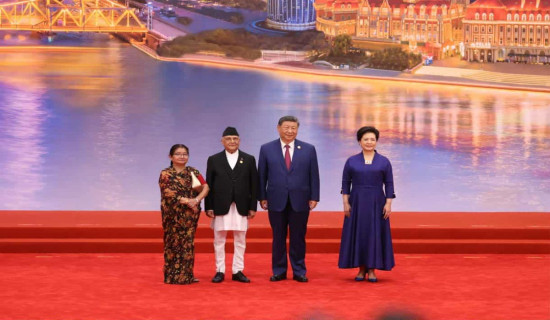
-square-thumb.jpg)
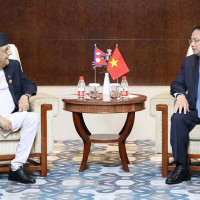
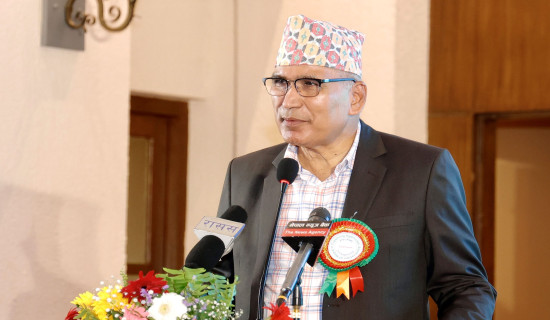
-square-thumb.jpg)
-square-thumb.jpg)

